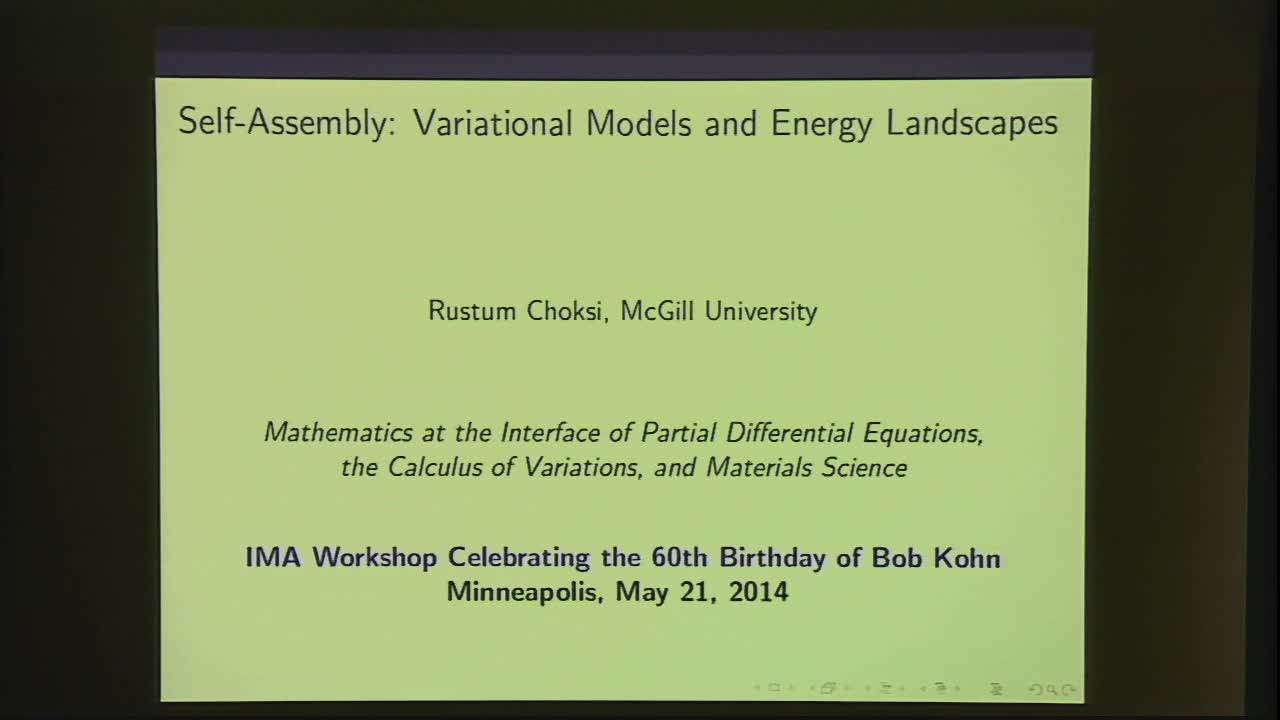Self-Assembly: Variational Models and Energy Landscapes
Presenter
May 21, 2014
Keywords:
- Variational methods
MSC:
- 70G75
Abstract
Self-assembly, a process in which a disordered system of preexisting components forms an organized structure or pattern, is both ubiquitous in nature and important for the synthesis of many designer materials.
In this talk, we will address two variational paradigms for self-assembly from the point of view of analysis and computation.
The first variational model is a nonlocal perturbation (of Coulombic-type) to the well-known Ginzburg-Landau/Cahn-Hilliard free energy. The functional has a rich and complex energy landscape with many metastable states.
We present recent joint work with Dave Shirokoff and J.C. Nave at McGill on developing a method for assessing whether or not a particular (computed) metastable state is a global minimizer. Our method is based upon a very simple idea of using a ``suitable" global convex envelope of the energy. We present full details for global minimality of the constant state, and then present a few partial results on the application to non-constant, computed metastable states.
The second variational model is purely geometric and finite-dimensional: Centroidal Voronoi Tessellations (CVT) of rigid bodies. Using a level set formulation, we a priori fix the geometry for the structures and consider
self-assembly entirely dictated by distance functions. We introduce a novel fast algorithm for simulating CVTs of rigid bodies in any space dimension.
The method allows us to empirically explore the CVT energy landscape. This is joint work with Lisa Larsson and J.C. Nave at McGill.
